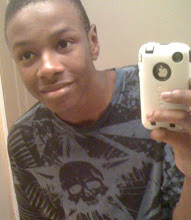Long, Ron. (1997). “The Fitness of the gym,” Harvard Gay and Lesbian Review, Vol. IV, No. 3, Summer, pp. 20-22.
Ron Long is a gay theorist who has done studies on what makes men attractive in The Fitness of the Gym. His research is in the interpretation of what the “beauty” of a man is. He would therefore support that men are attractive to other men not just because of their“hard bodies” but because of their entire image.
The idea that I use from Ron Long’s The Fitness of the Gym is that contemporary gay sexual aesthetics are closer to “lean, taut, sinuous muscles rather than Schwarzenegger bulk.” The reason this idea is presented is to note that there are many interpretations and personal reasons to why men may be sexually desirable—the desire is not just because of his muscles and buildup, but because of how the muscles appear. While the bulkier guy appears to be the sex symbol (the traditional way man were portrayed), the other guy presents more “dynamic tension”. When you see him, you imagine more than just a bulky guy, but you envision a guy with more flexibility, more agility—he is designed for movement; this allows your imagination to be limitless.
The idea that I use from Ron Long’s The Fitness of the Gym is that contemporary gay sexual aesthetics are closer to “lean, taut, sinuous muscles rather than Schwarzenegger bulk.” The reason this idea is presented is to note that there are many interpretations and personal reasons to why men may be sexually desirable—the desire is not just because of his muscles and buildup, but because of how the muscles appear. While the bulkier guy appears to be the sex symbol (the traditional way man were portrayed), the other guy presents more “dynamic tension”. When you see him, you imagine more than just a bulky guy, but you envision a guy with more flexibility, more agility—he is designed for movement; this allows your imagination to be limitless.
